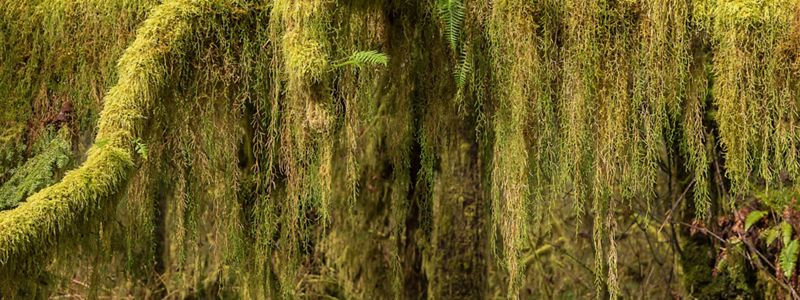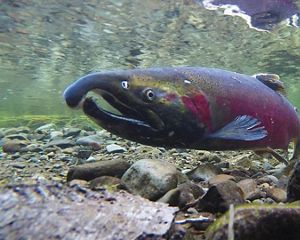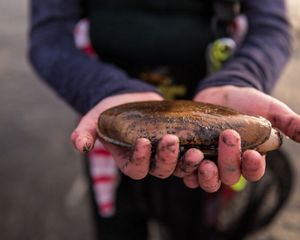Redefining Belonging in Marine Science
How Dr. Tiara Moore’s journey in science empowered a global marine community
By Leah Palmer, TNC Writer/Editor
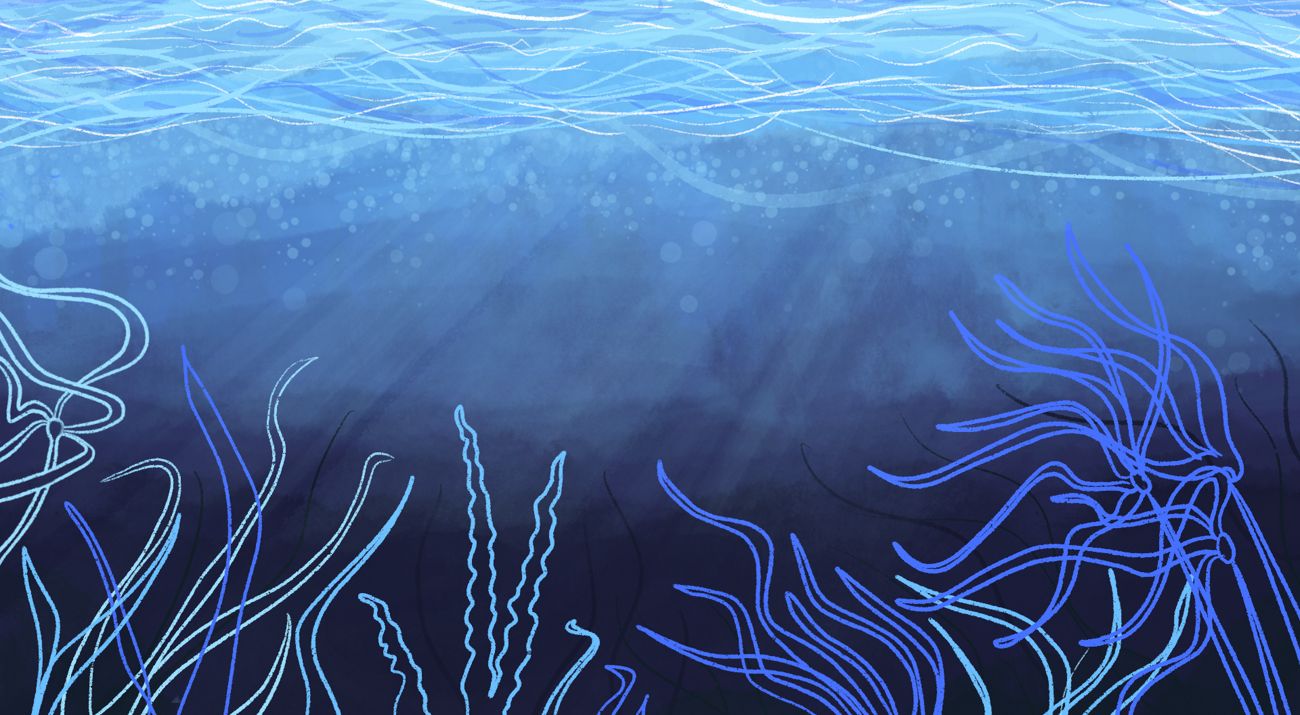
The Nature Conservancy (TNC) celebrates Dr. Tiara Moore, founder of Black in Marine Science (BIMS), whose research and tireless efforts empower marine scientists across the world to thrive in their field. Alongside Dr. Moore, we acknowledge a need for scientific research led by local communities with vested interest in local climate impact, including sea-level rise, and nutrient pollution in our oceans.
We celebrate the BIMS Institute, a joyful place for meaningful discovery, innovation and belonging.
This is a story about one woman’s life-long journey to silence a harmful message that she did not belong. This is a story about her journey to create an inclusive home for a global marine science community, through funding BIMS, which is open to all and provides a network for a community of black marine science professionals.
This is a story about how the Black in Marine Science Institute came to be and TNC’s small part in it.
*Content Warning: This story contains discussion of self-harm, suicide and professional challenges. Please take care while reading.
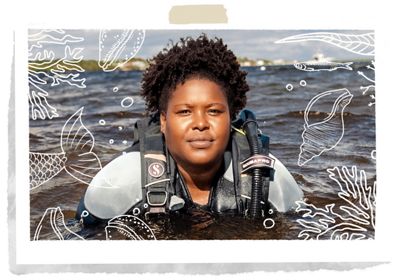
Wade in the Water
For Dr. Tiara Moore, the ocean offers indescribable clarity. Despite pounds of pressure surrounding her body, she is safe in the gentle rocking and drifting. She describes a world beneath the surface, filled with ancestors’ whispers, “Take your freedom from the deep. You are safe, and you belong here.” To Moore, this comforting presence originates from countless souls who escaped the tragedy of Middle Passage—the pathway used on the Triangular Slave Trade—by freeing themselves in deep, dark waters. Their last act was full of self-determination. The spirits in the waters call her and others back to a symbiotic relationship with water, which for some was a site of terror. Though the ocean was used as a tool to traffic, enslave and isolate, it has always been so much more, and today it calls. Moore works to restore this broken relationship.
It’s almost an unfathomable paradigm, to be safe during a potentially life-threatening dive, but on most days, the ocean is the safest place Moore can be. This is because the ocean’s systems of currents and biodiversity are less threatening than the systems of neglect and harm she faced since she was a young girl.
All This for “Young T”
Moore admits, she usually avoids publicly sharing the stories of her childhood, but as she transitions from her work at The Nature Conservancy to a full-time focus on Black in Marine Science, it’s important to reflect on young Tiara. Her life and work today are both motivated by simple truths she would tell her younger self: "Young Tiara, girl, you have a purpose. You belong."
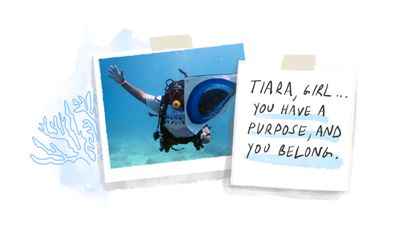
Born in Philly to a 17-year-old mother, who was eventually incarcerated and unable to care for her, she recalls lacking much-needed nurturing. At 10 months, she was sent to live with her grandma, Cathy, in South Carolina. In a fated family cycle, Moore notes Cathy also birthed her mother as a teenager, and by the time she took on full-time care of young Tiara, Cathy had her hands full with other young children. In Cathy’s home, Moore says her presence caused resentment, and love was often dangled like carrots. “I was always made to feel like I should be grateful for whatever I get because I shouldn't get nothing. So, with every little bit, I had to make the best of it,” she recalls.
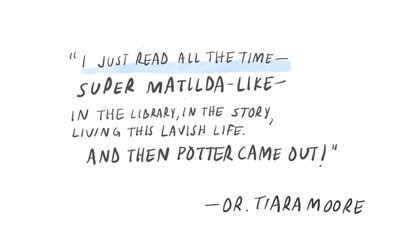
Moore found an escape in the pages of Harry Potter, where the sorting hat declared her a member of house Gryffindor and offered safety in the magical, candlelit halls. But she wasn’t just reading for reading’s sake. In school, she “found out if you read, you can take these little tests and they give you a free pizza.” She thought to herself, “Oh! Hell, I'm about to read all the books!”
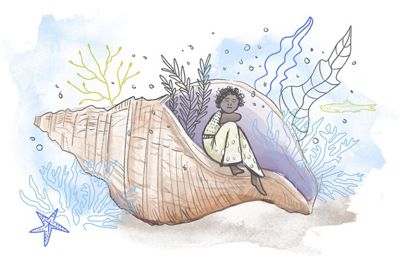
Young Tiara was cultivating a space for her imagination to come alive, paid for slice by slice, page by page. Perhaps it was accelerated reading that allowed her to dream up the big life she lives now, or maybe it was a calling from the Atlantic Ocean nearby her home, but she knew higher education was the next step for her.
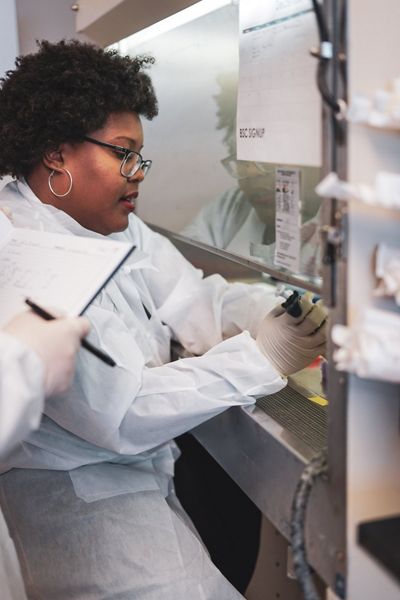
Searching for Belonging
If the Ph.D. behind her name is any indication, Moore was a determined student. However, her time in ivory towers and university labs is characterized by familiar feelings of not belonging—especially once she reached graduate and postdoc settings. Moore recalls colleagues challenging her sense of belonging with passing comments, like telling her, “I've never worked with a Black woman who has a Ph.D.” Perhaps her presence in the lab was unexpected, or perhaps it calls for the broader scientific community to expand opportunities for all.
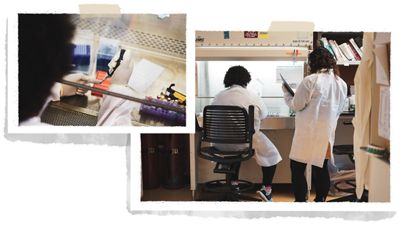
Dr. Moore initially considered lack of representation in her field a non-issue, but as she moved beyond her undergraduate career, she recognized the importance of including all perspectives in critical conversations about improving the lands and waters on which we all depend. . She says, "I really did not understand the hugeness of being a Black woman in marine science.” Moore has since expanded her efforts to help others feel they too belong in the field, despite the challenges they may encounter.
For example, Dr. Moore remembers a moment at University of California, Los Angeles (UCLA), where her academic advisor and dissertation chair accidentally included her on an email thread with the rest of her committee members. The advisor approved Dr. Moore’s dissertation despite saying, “she can't write a complete sentence. I'm so concerned for her postdoc.”

For Dr. Moore, these comments were as good as a betrayal and grounds for questioning her merits and value. Once again, the fear that she did not belong was suddenly triggered. “Literally, my whole world crashes…While I am on this educational journey, I am losing hope, feeling it doesn't really matter what I do. Maybe I'll never be good enough. I was really struggling with that,” she says. These and other experiences sent Dr. Moore into a depression, and, subsequently, she survived multiple suicide attempts. “I couldn't believe a place I chose triggered the same feelings of not being wanted there or not belonging. One night I tearfully asked myself, would I ever belong anywhere? Recognizing that familiar feeling of hopelessness, I knew I needed to get help,” she reflects.
BIMS Redefines Belonging in Marine Science
Healing from these incidents meant beginning therapy, facilitating difficult conversations with her family members and never giving up on her career in marine science—beginning work at TNC in July 2019. With the leadership of Dr. Phil Levin, former lead scientist for TNC’s work here in Washington state, Dr. Moore’s eDNA research produced interesting findings that can help inform restoration of biodiversity in coastal forests. Dr. Levin recognizes Dr. Moore’s intervention in marine science includes stewarding BIMS, and he was an early advocate. “Dr. Moore’s eDNA study is an example of research that can inform conservation of a vital ecosystem that supports the well-being of the region’s residents. Furthermore, it has been an honor to watch Dr. Moore grow into a leader who creates so many opportunities for brilliant, yet often overlooked, thinkers in our field,” said Levin.
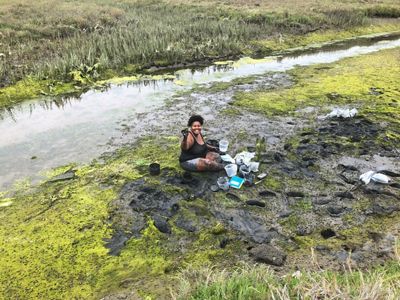
Dr. Moore organized the first BIMS Week, starting with a tweet that invited other marine scientists to connect and collaborate. The emerging community challenged isolation and firmed up a sense of collaboration across cultures and identities.
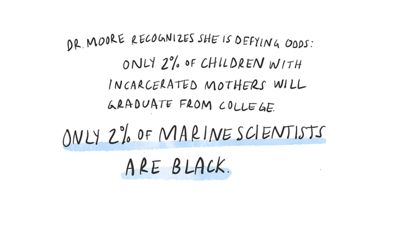
This was only the first step toward growing BIMS to its current 5-year sustainability plan. Early parts of the start-up process included building a unique identity that could support a long-term vision. Carrie Krueger, former director of marketing at TNC in Washington, played a supportive role in this process. “The marketing team at TNC worked together to firm up Dr. Moore’s vision by creating valuable brand clarity. It was my honor to help her discover communication strategies that work well for her audiences and will carry her far.”
Local Communities Can Solve Sea-Level Rise and Nutrient Pollution
As CEO of BIMS, Dr. Moore is developing initiatives based in their organizational values to "build a more innovative ocean community" and ensure “our community's voices contribute to the future of our oceans. Her leadership drives toward transforming the marine community in a way the centers local knowledge in the places they work.
"I think this is the changing point of the conversation.” she says Moore distinguishes BIMS efforts from other prominent marine science institutions, like Scripps Institution of Oceanography in CA, Woods Hole Oceanographic Institution in MA and University of Washington.
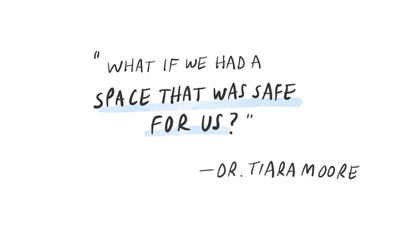
Thus, the future of BIMS includes investing where the impacts of climate change are experienced daily. Moore has identified Hampton, Virgina, as a critical place to conduct research and activate climate initiatives that could benefit local communities.
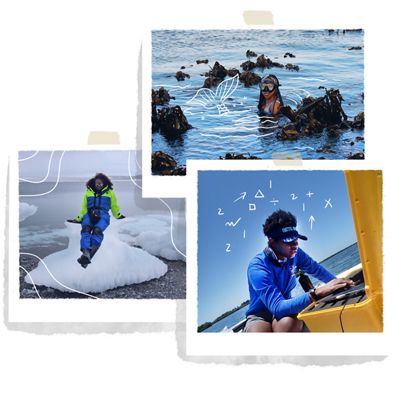
Dr. Moore breaks down the issues taking place in the Chesapeake Bay, where fishermen and oyster harvesters have progressively watched the declining health of their homes. She says, “ the Chesapeake Bay, around the Hampton area is a mess, but up north it's better. Why is that? Because they have marine scientists in the Boston area who are making sure it's protected." BIMS aims to disperse critical resources throughout the Bay to ensure all locals benefit from an insurgence of climate scientists protecting the waters where they live.
Dr. Camille Gaynus, board chair at Black in Marine Science, is proud of Dr. Moore’s accomplishments, recognizing them as a gamechanger for coastal communities and the industries that rely on healthy waters. “Dr. Moore has a vision for ocean conservation that incorporates all credible perspectives on many levels, leveraging the strength of diversity. As a Black marine scientist who seriously considered leaving the field, it has been through BIMS that my passion for the ocean has been reinvigorated. Her vision, however, goes far beyond me and making sure that professionals are heard and a part of science; she has made sure all identities and communities are involved in the research, education and movement of ocean conservation. She knows the issues facing our oceans are serious and it is going to take all of us to be a part of myriad solutions. The research BIMS plans to do in the Chesapeake and their current work in the Caribbean and Midwest serve as a testament to the vision becoming a reality, and I know it will only grow, and the reach BIMS has will expand globally.”

Perhaps most importantly, Moore is actively cultivating interest in marine science among students who may not already imagine themselves in the field. In some ways, she echoes the whispers she once heard in the ocean, welcoming her to swim, to explore, to listen, to observe, to belong. For many, this is a powerful calling back to water despite a common fear of water within the Black community. This is a powerful undoing after centuries of experiencing water as trauma sites, compounded by recent Jim Crow laws that once deterred Black people from public swimming pools. A 2008 NPR article reported over 50% of African Americans cannot swim. Dr. Moore's hopes her personal reconnection with water creates inroads for more people to return to an ocean that welcomes all of us.

Moore’s commitment to healing her trauma naturally created inroads for more people to return to an ocean that welcomes all of us. "Even when I'm scuba diving, I feel there's a connection to the ancestors in the water. They’re saying, ‘Hey, we was waiting for you this whole time. I'm glad you made it. Let me show you the answers to climate change, to save our communities and to bring us together.’” I really feel the work we're doing at BIMS is really changing us and empowering us.”
Supporting a Bright Future for BIMS
The Nature Conservancy has continued its partnership with BIMS, as Moore leads more than 300 members representing a variety of cultural identities across the group. Together, they discuss their research, provide immersive experiences and training for marine science students of all backgrounds, and build collaborative momentum. “It has been TNC’s privilege to work alongside Dr. Moore in her time here at our Washington field office, and it will be an honor to continue a mutual partnership. Networks and platforms like BIMS are supporting the emerging generation of science and environmental leaders, and it’s truly an inspiration to support that work,” said Mike Stevens, former state director for the Washington chapter and current Western US and Canada division director.
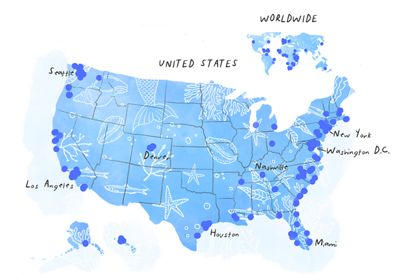
Learn more about the BIMS institute: www.blackinmarinescience.org/bims-institute
We Can’t Save Nature Without You
Sign up to receive monthly conservation news and updates from Washington. Get a preview of Washington's Nature News email.
